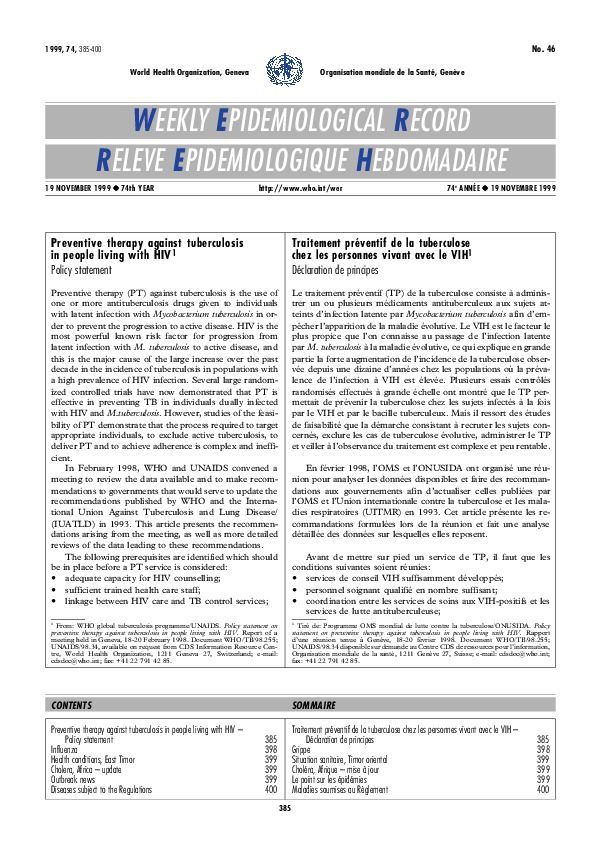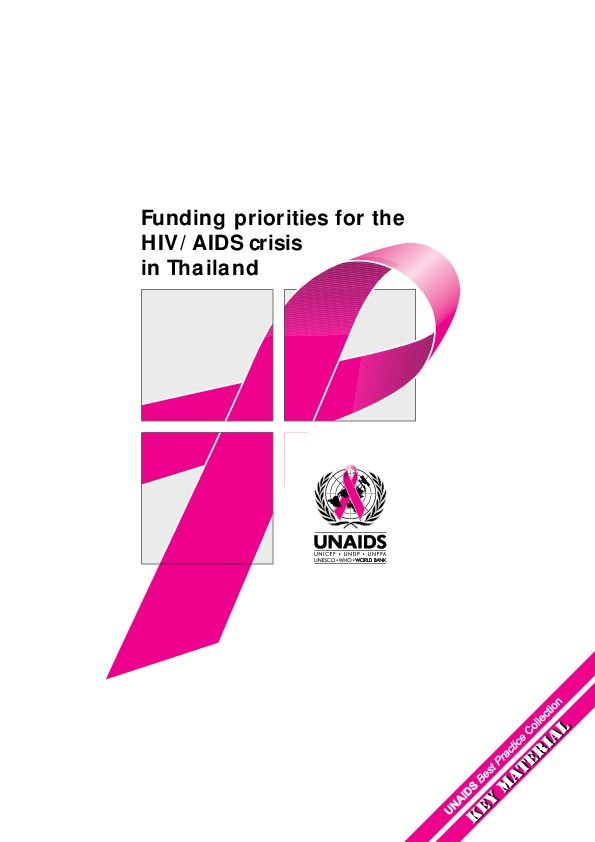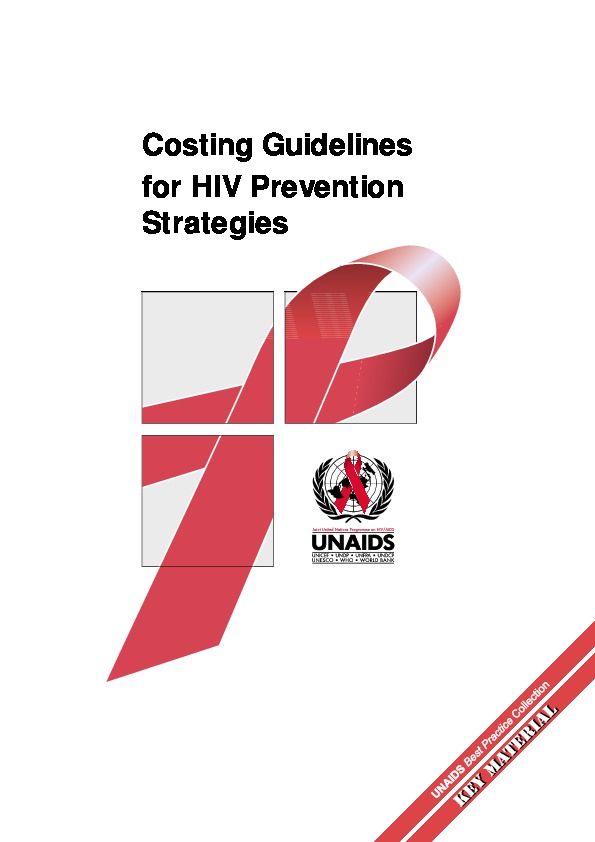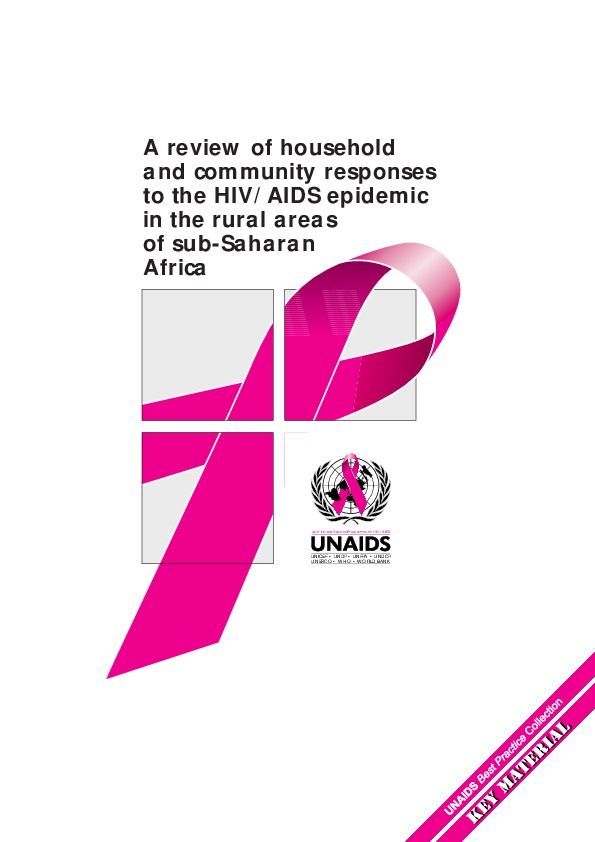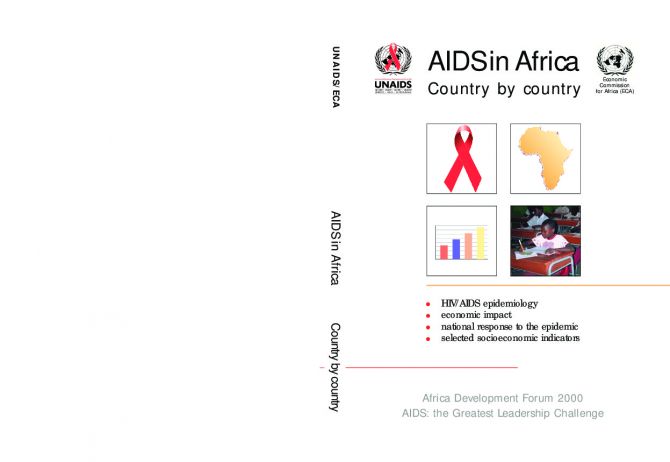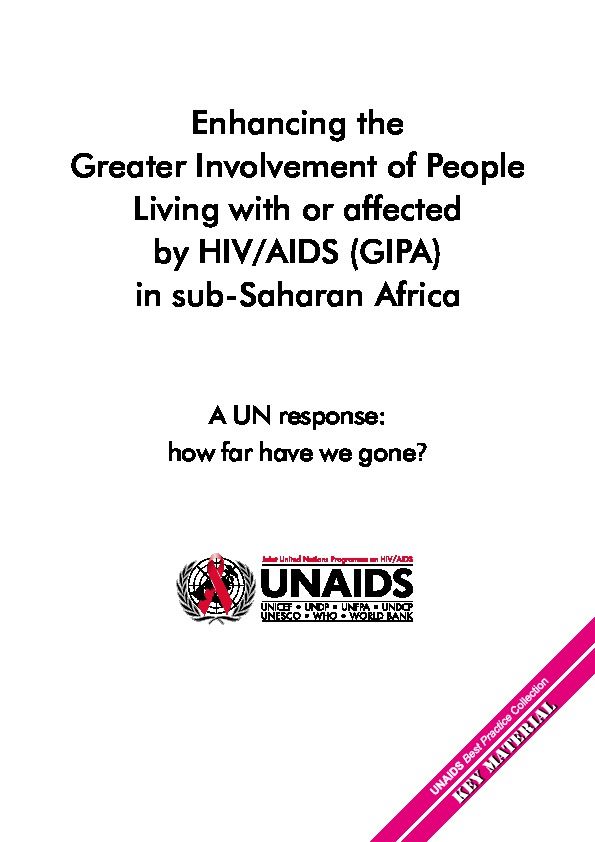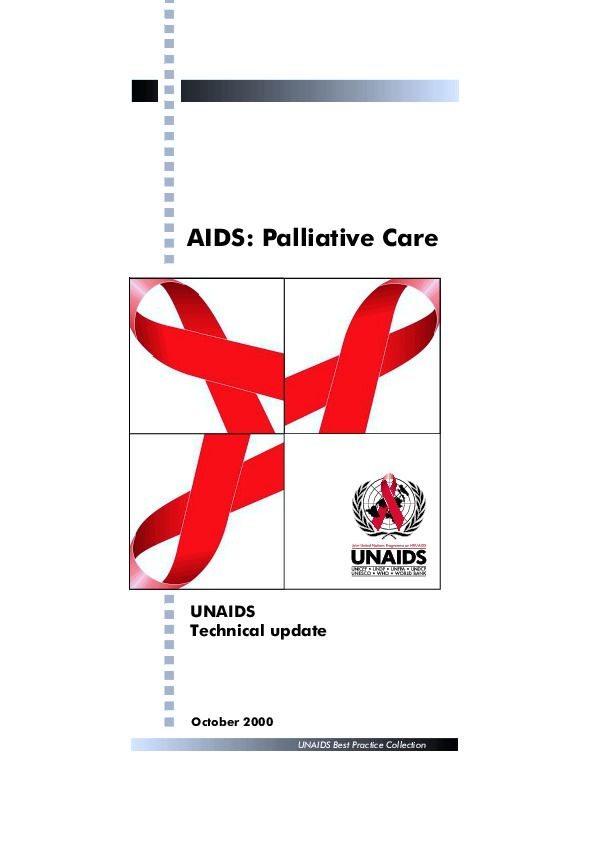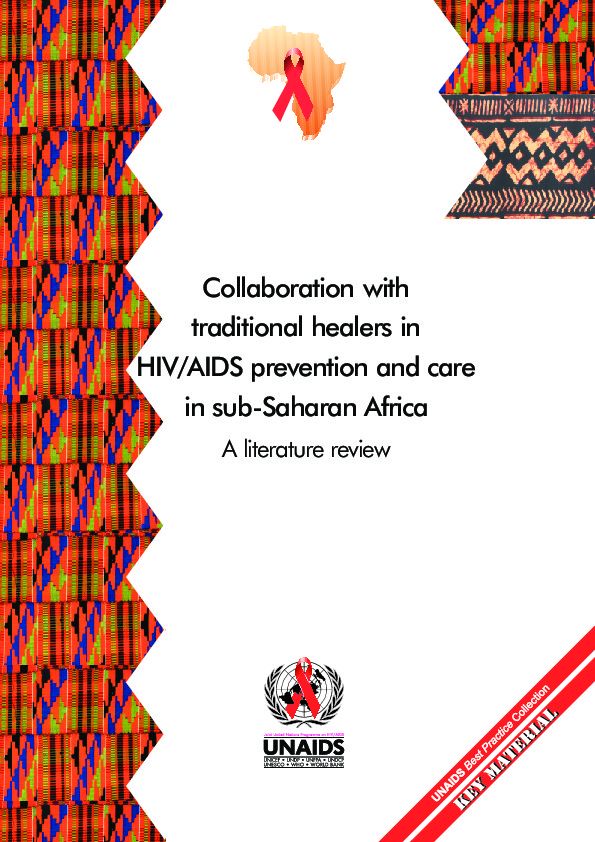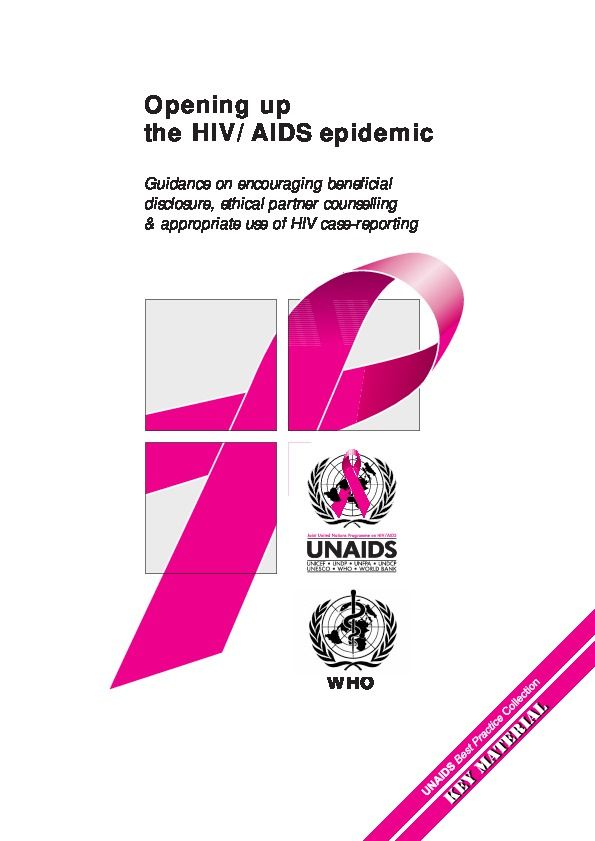Documents
Funding priorities for the HIV/AIDS crisis in Thailand
20 October 2000
This paper introduces the conceptual framework of interrelated consequences of the economic crisis on HIV/AIDS prevention and control. On the basis of document research and in-depth interviews with officials at national and provincial levels, we explain how the Government of Thailand has dealt with the AIDS epidemic
during the period of economic hardship.
Documents
Costing Guidelines for HIV Prevention Strategies
20 October 2000
Documents
A review of household and community responses to the HIV/AIDS epidemic in the rural areas of sub-Saharan Africa
20 October 2000
Documents
AIDS in Africa country by country : Africa development forum 2000, HIV/AIDS epidemiology, economic impact, national response to the epidemic, selected socioeconomic indicators
31 October 2000
As a resource for the delegates at this African Development Forum 2000 devoted to the topic of HIV/AIDS, UNAIDS is pleased to provide the following country profiles. Together, the profiles help to paint a picture of the current state of the HIV epidemic in Africa, its impact on the social and economic fabric, and the response thus far of the African nations to the unprecedented crisis caused by HIV/AIDS. For the selected indicators used, they are as complete a compilation as possible, given the available data from the African countries and from UNAIDS and WHO sources. Additional information on AIDS in Africa is available from the UNAIDS Web site (www.unaids.org) and other sources, including the bibliographical references contained in this document.
Documents
AIDS: Palliative Care
31 October 2000
Palliative care aims to achieve the best quality of life for the patients (and their families) suffering from life-threatening and incurable illness, including HIV/AIDS. Crucial elements are the relief of all pain-physical, psychological, spiritual, and social and enabling and supporting caregivers to work through their own emotions and grief.

